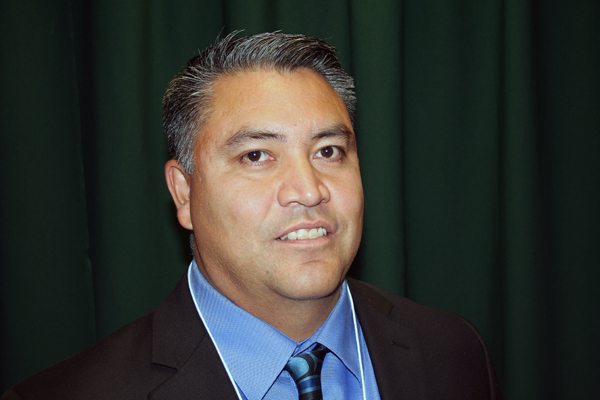Nechako Lakes MLA John Rustad and BC Assembly of First Nations Regional Chief have totally different opinions following a pipeline protest near Houston resulted in the arrest of 14 people.
The controversial and proposed Coastal Gas Link LNG facility would run from Dawson Creek through Houston and then onto the coast.
However, the main bone of contention is part of the pipeline route runs through Wet’suwet’en Territory.

According to Rustad, the project still has its benefits despite the opposition from First Nations.
“No one wants to see civil disorder and I’m sure no one wants to see people arrested, but this is a project where we’ll see significant benefits go to first nations and as this project gets built, the training and the jobs will be significant.”
Police went into the blockade on Monday to force an injunction that was issued by the BC Supreme Court three weeks ago.
Teegee is pretty miffed at the response the RCMP have shown during this issue.
He is of the opinion a more peaceful solution could have been reached by all parties just a few years earlier.
“The camps at the Unis’tot’en has been there for well over eight or nine years, it’s frustrating that the company and the RCMP are willing to implement the injunction and it’s a situation that should have been implemented a long time ago.”
“The issue is the process to allow the company in is a flawed process that needs to be fixed.”
Other issues could range from the parties coming together and discussing any environmental issues or rerouting the entire route of the pipeline as Teegee sees it as the cost of doing business within the Wet’suwet’en Territory.
Police are scheduled to arrive at the camp sometime today.
On the flip side, Rustad remains perplexed on the amount of opposition towards the LNG project, citing it as a head-scratcher.
“The on-going revenues that will go to First Nations that will help out with education, that will help with getting people out of poverty is tremendous it really is a once-in-a-lifetime opportunity and it’s unfortunate that a small group of First Nations is opposing this opportunity.”
 Teegee also shot down that suggestion, believing this lengthy battle is a bigger reflection on the rocky relationship between Ottawa and the province.
Teegee also shot down that suggestion, believing this lengthy battle is a bigger reflection on the rocky relationship between Ottawa and the province.
“Despite the fact, there has been a lot of discussions in regards to this route of the pipeline, I think it really speaks to the process and also the failing relationship between the federal government and the province as well as the group of First Nations who are protesting this.”
Wet’suwet’en member Mel Basil attended Monday’s protest in Houston and recognizes while we live in Western society, he stated the water is already pure in their territory and questions why they would sell it all off and then have to buy water and food.
Rustad states the area’s current water supply would be unharmed and believes a lot of misinformation is being shared among its members.
“Natural gas is a gas. It doesn’t mix with water, it doesn’t mix with the land and it doesn’t poison the land. There is no negative impact from a natural gas pipeline either on land or on the water supply.”
Teegee believes 2019 could be a difficult year for these kinds of projects as similar situations like the protest could happen again due to the election promises made by Prime Minister Justin Trudeau on the Trans Mountain Pipeline.


